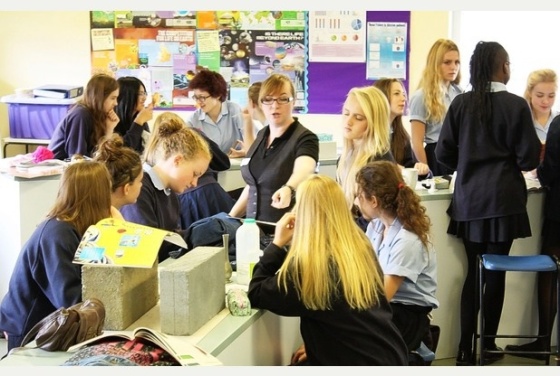
Women ‘don’t understand fracking’ article in the Times from @EbenMarks
This morning I was sent an article from the Times titled ‘Women ‘don’t understand fracking’. This article was forwarded to me because my research into what people think about geology has occasionally brushed onto fracking and as such I have a very keen interest in how people think about fracking and what impacts on the decisions that they make about it. Professor Macdonald’s comments were perceived as controversial, and the article opened with:
“Vast numbers of women are opposed to fracking because they ‘don’t understand’ and follow their gut instinct rather than facts, according to a leading female scientist.”
The article went on to quote a study done by the University of Nottingham, which stated that 31.5% of women believe that that shale gas exploration should be allowed in the UK as opposed to 58% of men, and that 65% of women identified shale gas as the product of fracking as opposed to 85% of men (the article said ‘correctly’, but as you can extract different types of fossil fuels using fracking including oil and methane – I would want more info before drawing that conclusion).
The specific Nottingham University study itself was not made clear in the article, but it is here and it forms part of an ongoing series of studies about how we in the UK perceive shale gas extraction and fracking. The studies have provided many interesting results, but the focus on gender highlighted in this article has raised concerns. I was asked in the context of my work – had I found any gender bias in this issue of how people perceive geology? The short answer to that is not yet. The long answer is that I am less interested in the influence of gender and so am not specifically looking at that factor, and also that most of my data is still qualitative and so I would not want to draw general conclusions at this point.
But I wouldn’t be surprised if I did.
It seems to be true that there is a gender difference in the way that men and women perceive science in general and fracking in particular – the work done by Nottingham is good and should be trusted. This issue here for me is more about the context of that difference. The article mentions that women may have less access to science education because they may not have continued science (or any STEM subject) post 16, and that would lead them to feel less confident in their understanding of science. The article then continued with the statement from Professor Macdonald:
“women are more likely to form opinions based on ‘feel’ and ‘gut reaction.”
The quote is continued in another article (as the Times is behind a paywall and I only got a small part of it):
“Merely showing them more facts demonstrating that fracking was safe would not change their minds, she said.“Why are men persuaded? That’s because an awful lot of facts have been put forward,” she said. “[Men] will say, ‘fair enough, understand’. But women, for whatever reason, have not been persuaded by the facts. More facts are not going to make any difference. What we have got to do is understand the gut reaction, the feel. The dialogue is more important than the dissemination of facts.”
(continued from the Telegraph)
What this article fails to do, is separate two very important issues: the difference between access to science for different genders, and how having a science education can make you feel more confident in discussing and debating science issues. The problem, as I see it is this:
- Girls are less likely to access science (or STEM) post-16 than boys
AND
- If you have not had a science education, then fact-based science communication is harder to engage with.
What it doesn’t mean is that women are less able to engage with science than men, that’s a fallacy of logic. There are men who didn’t engage with science post-16 that struggle with fact-based science communication, just as much as there are women who have had access to post-16 science education who are completely comfortable with fact-based communication.

Working with girls from my old school on a STEM day (photo from the Herald Express)
The context that is missing from this article is culture. Women have culturally, for hundreds of years, been told that science is not for them, so they don’t engage with education. When someone of any gender doesn’t engage with education, it becomes harder to understand the intricacies of that subject later in life. What I have found in my research, and what I increasingly believe to be true, is that most people regardless of their gender want to know more about fracking, but the answer to that thirst for knowledge is not just facts. As communicators we need to take into account the different influences on people’s lives and not just expect them to understand and agree with us when we present them with data.
So really I think this comes back to the title of this piece – ‘Women ‘don’t understand fracking’. Well maybe, for deeper cultural reasons, this is true – but actually I think the headline should read, ‘Women (like men) CAN understand fracking’ and it’s our job as science communicators to help make this happen.
